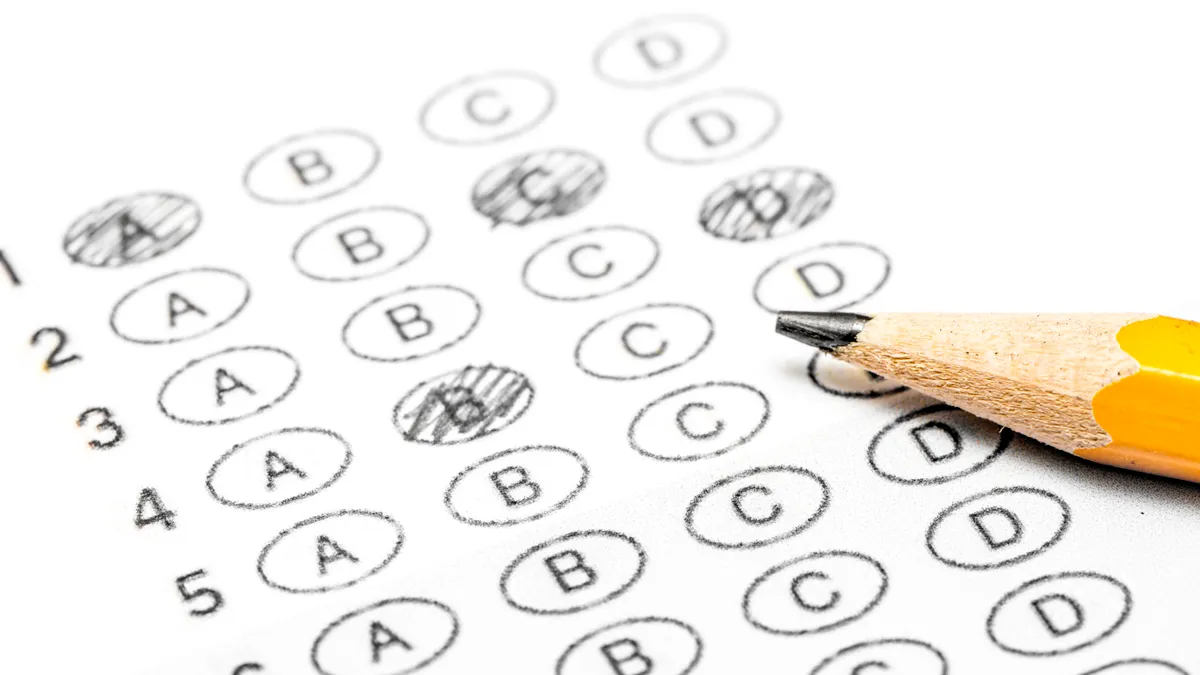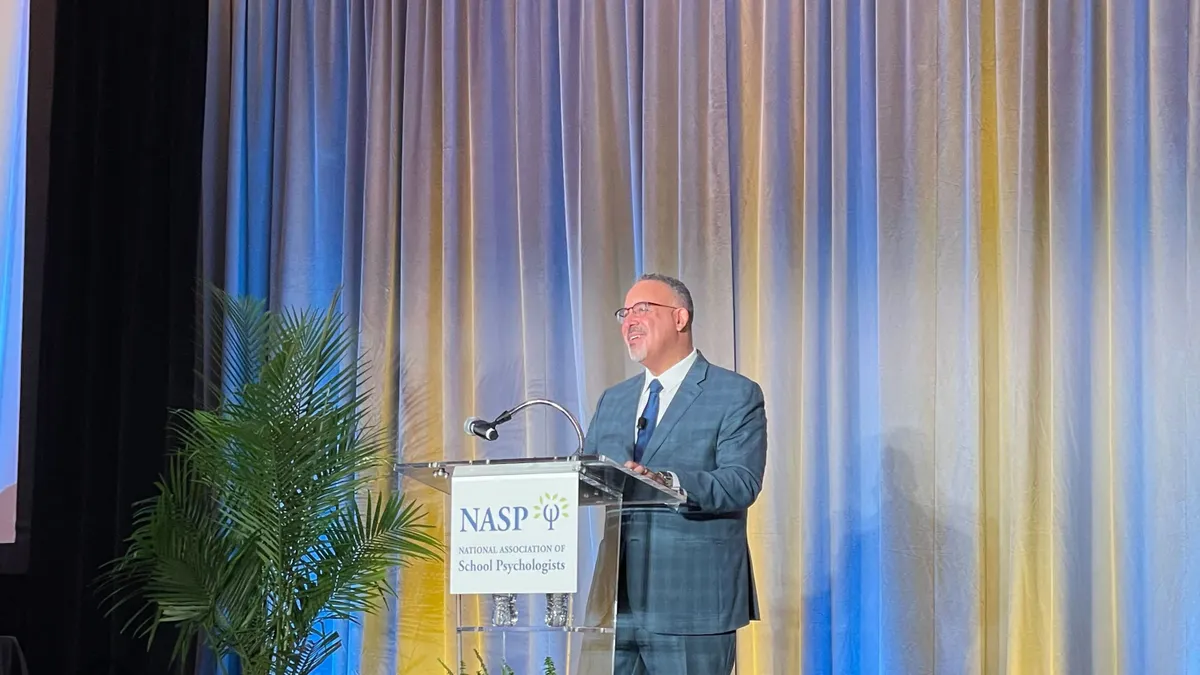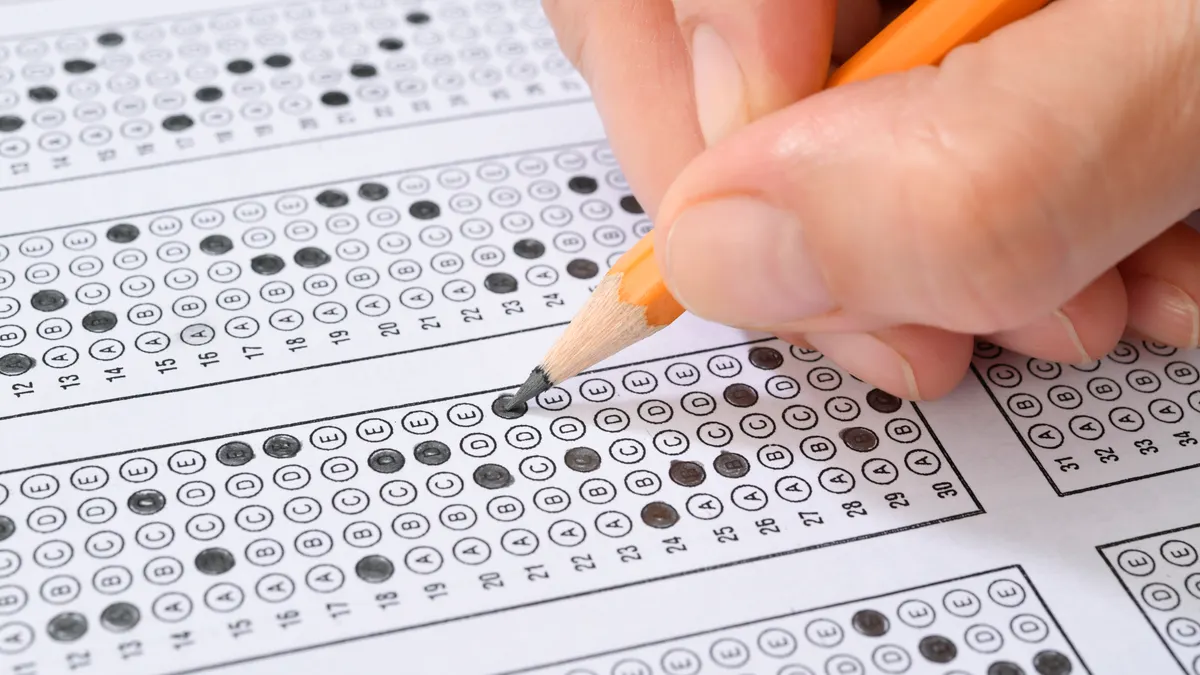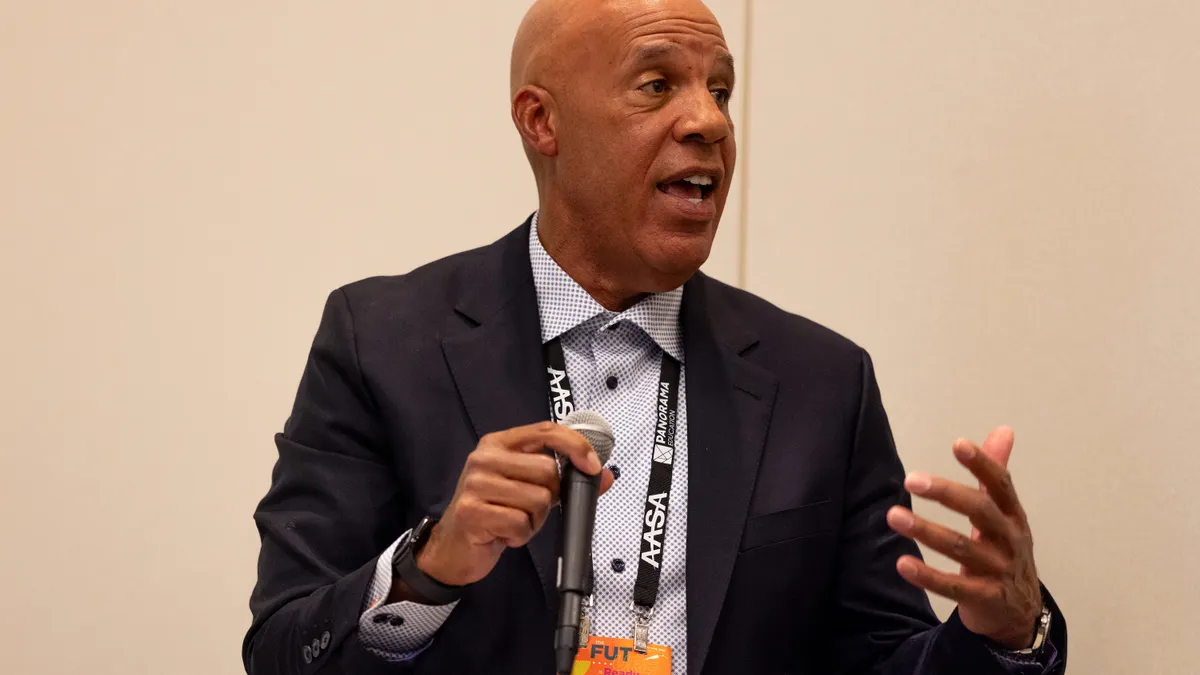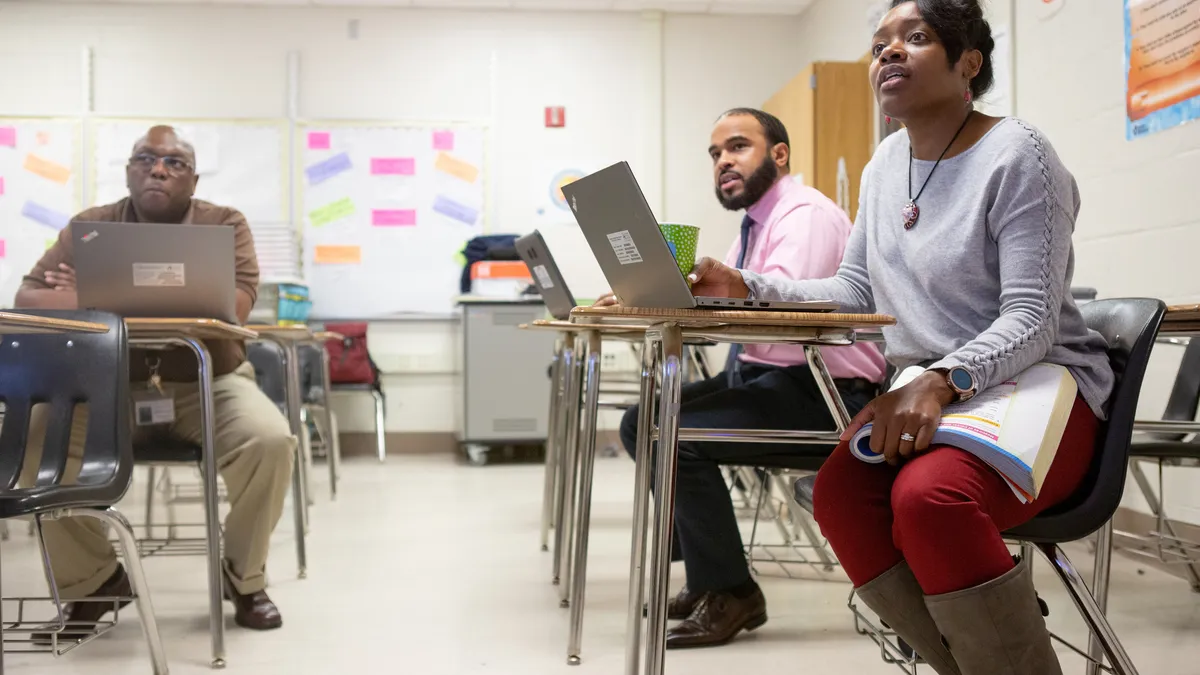Declines in student math performance amid the COVID-19 pandemic are a global phenomenon, according to 2022 Program for International Assessment results.
A first look at the results from the 2022 Program for International Student Assessment show that U.S. students’ average math scores declined by 13 points compared to prior to the pandemic, and by 18 points from when the PISA math assessment was first administered in 2003.
While other industrialized nations like Iceland, Norway, Poland and Slovenia generally score higher than the U.S., declines in some of those countries were steep enough that many of their scores were not significantly different from those of the United States this time around.
"Everyone had some struggles with this pandemic. What we're seeing here is that we had less struggles," said Peggy Carr, commissioner of the National Center for Education Statistics, which administers both PISA and the National Assessment of Educational Progress. She added that while there was a small relationship between school closures and how countries performed, most of the score changes were not due to how long schools remained closed.
PISA is an international test of reading, math and science administered last year in 81 countries and education systems to track how 15-year-old students apply their knowledge as they near the end of K-12 and enter postsecondary education or the workforce. The results also show how their academic performance compares to their peers globally.
The test is administered every three years, other than when it was postponed from 2021 to 2022 due to the pandemic. It rotates between reading, math and science for every test administration.
"It is an important leading indicator of whether students will have skills that they need to succeed as adults as they reach the end of their high school career," said Carr.
The latest results show patterns similar to those seen in last year's NAEP scores, which also found significant declines in math. While both assessments test for math, PISA has more contextual questions and emphasizes real-world applications.
"Declines in student achievement, especially in mathematics, have become a familiar theme over the past year as we've gotten a look at a series of results from the National Assessment of Educational Progress," said Carr. "The findings of this international assessment tell a similar story."
Despite this, the United States' ranking in all PISA subjects — including math — improved because of steeper declines in other countries. For example, the United States came in 26th place for math in 2022, an improvement compared to when the U.S. ranked 29th for the same subject in 2018.
"But those rankings are due to others suffering more in the face of this pandemic than the United States," added Carr.
Still, about a third of U.S. students are at or below the basic skill level in math, per the latest PISA results. "That's a lot," said Carr.
Basic, or baseline level proficiency, is defined as students being able to "devise and use simple strategies including ratios and one-variable simulations to solve problems; extract information from somewhat complex representations," according to NCES.
Cardona calls for ‘math revolution’
However, results in reading and science were more encouraging.
Scores in those two subject areas remained steady compared to 2018 and to 2000, which is when the earliest PISA data is available for those subjects. The nation's students scored 6th in reading and 10th in science.
But despite the glimmer of hope, those two subjects also saw widening achievement gaps between the lowest and highest performers in last year's NAEP results.
"And we see a similar pattern in these PISA data," said Carr. "We're not seeing that with math."
U.S. Secretary of Education Miguel Cardona said "the bottom line" gathered from PISA 2022 results is that "the United States moved up in the world rankings…while unfortunately many other countries saw declines."
Despite that takeaway, he maintained that there's still a long road ahead for academic recovery, considering that math scores continue to decline and remain stubbornly low. He also raised concerns over the persistence of long-standing achievement gaps.
"So we cannot be complacent at home," said Cardona, especially considering that math factors into global competitiveness and leadership, and that many high-paying jobs benefit from math skills.
He called on local education leaders for "a math revolution," including tapping into strategies that are proven to accelerate outcomes, alongside other initiatives like building state and local partnerships, focusing on core instruction and supporting the educator workforce.
"Our nation's academic recovery is well underway, as evidenced by the scores that we saw today," said a department spokesperson. "We are not satisfied with that standing. We want to be first in the world."


